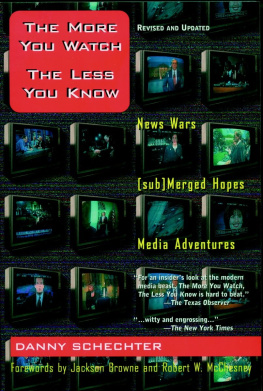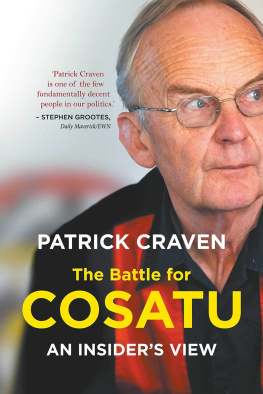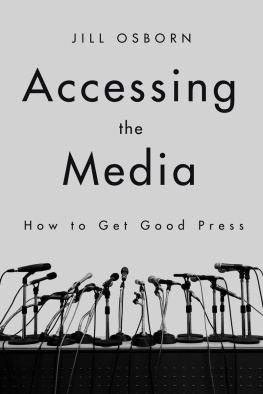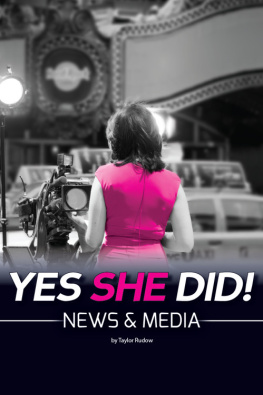CHAPTER 1
NEWS DISSECTING: INSIDE THE ROCK RADIO REVOLUTION
There is no such thing as pure objective observation. Your observations, to be interesting, i.e., to be significant, must be subjective. The sum of what the writer of whatever class has to report is simply some human experience...
Henry David Thoreau
I n the fall of 1970, the two-year-old WBCN, Bostons top twenty-four-hour rock n roll station discovered that it was not providing the newscasts it had promised the FCC in their license application.
Founded by T. Mitchell Hastings, an engineer and radio pioneer whose claim to fame was the car stereo and other technology indispensable for the spread of the FM phenomenon, BCN had been a classical station. Breakthroughs in technology had ushered in a new radio age. Frequency Modulation, or FM, produced a superior sound. As the technologys booster, Hastings built a classical music radio empire up and down the East Coast, but initially his Concert Network only reached audiophiles who could afford the expensive receivers. As a result, his network became financially moribund.
In 1968, T. Mitch was struck down by a brain tumor requiring immediate surgery. When he went into the hospital, his Boston station was playing symphonies and barely paying its bills. When he came out, BCN was under new management that had rolled over Beethoven and was rocking around the clockand making money. Handel was out; Hendrix was in. The convalescing owner may have hated the music, but he liked the cash flow. I was in the hands of a higher power, explained Hastings about the format change. I know it was the hand of a higher power because I never would have had the guts. WBCNs 1973 income quadrupled that of 1967.
FM made broadcasting in stereo possible, which in turn begat album-oriented radio, known in the trade as AOR. FM DJs began to challenge and compete with the hit parades and screaming disc jockeys of AM, what the FM crew called ugly radio. BCN was a leader in shaping a free-form, formatless format featuring hip personalities with a laid-back style playing longer sets of commercial-free music. DJs were known by the music they chose and the mood it created. Rock radio became the megaphone for sex, drugs and rock n roll, 60s-style. It was a generational thing, and it thundered with a political edge. While AM stations played Army recruiting ads, BCN offered information on draft resistance counseling.
Writing in the Boston Phoenix about WBCNs rebirth, the late Dave OBrian enthused: It was a warm day in March 1968. Everyone knew that that evening this station was going to start playing the music everyone at Brandeis was already listening to. And lo and behold, at the proper moment, after a fair amount of dead silence, this voice came on and said, professionally and youthfully: This is WBCN, Boston and then Cream started playing I Feel Free. It was sensational. The entire campus turned up their radios, and you could hear Cream down every hall and out every window pulsing through the spring air. It was a freeing moment in an otherwise oppressive year. And we knew it was the start of something. Wed even taken over the airwaves.
At first, BCNs news department consisted of one constantly spewing wire service machine. To underscore the stations unique-ness and in part because it was cheaper, BCN used Reuters rather than Associated Press. Back then news was an afterthought at a station whose musical style was among the most innovative in the country. But then someone had an idea: If the music was going to be different, why not the news? Bo Burlingham, an up-and-coming writer for the Boston Phoenix, a weekly underground newspaper, was brought on board to create a news department and at the same time to protect the license, any radio companys most valuable asset.
Every radio station in those days was required by the FCC to provide a certain amount of news and public affairs programming. (Years later, in the Reagan era, when radio was deregulated and FCC news requirements dropped, many newscasts and independent news departments followed.) Stations that didnt comply could have their license renewals challenged, although that rarely occurred; station owners saw these requirements as a burden to be satisfied at the lowest possible cost. Most either aired network news feeds or offered local news, which usually consisted of rereading the wire, ripping and reading, it was called. Sometimes, the news included rewriting local newspaper articles and very occasionally, sending a reporter to a local event. Only all-news radio and some AM talk-oriented stations had real news staffs, although even they usually devoted as much air time to the weather, traffic and sports as they did to current affairs. Radio news consisted of headlines and sound pops of five-to fifteen-second duration. Across the dial, news all sounded the same. It all was the same. National Public Radio was just getting going, aiming for the up-market mainstream.
Locally, radio news was seen as a loss leader and not yet a profit center or important service. Only the national radio networks offered more in-depth coverage of events outside the local broadcasting area. FM radio, which had higher sound quality, included entertainment features to supplement music programming, and was even less committed to news. More music, less talk became a popular slogan and selling point.
From the start, WBCN committed itself to providing independently produced news that spoke to the concerns and passions of its youthful audience. It was news that didnt stop at the borders of Boston. Draft-age listeners were interested in the war in Vietnam, so BCN reported it with some scope along with local and national news. Alternative news soon became a daily complement to alternative music. That commitment stood out in an industry faithful to the institutional proposition that the audience doesnt need to know anything, and doesnt much care anyway. (Its always been my experience that when managers say people dont care, its because they dont care.) Fortunately for its listeners, to protect its license, WBCN took its FCC responsibilities seriously.
Soon Bo Burlingham was writing the newscasts. The DJs read them and, together with Bo, would from time to time add other voices, music, sound effects and prerecorded interviews. These features would be played while the news was being read live. At most stations, then as now, DJs stick to the music and do their shifts. But at BCN, there was a collective spirit that led to many collaborations across traditionally segmented lines. In many stations today, computers have replaced people altogether in programming music mixes. It is all run by the research and the numbers. In those days, individual creativity was encouraged.
After just a few weeks in the newsroom, Bo himself unexpectedly became news. While scouring the wire one afternoon, he found his own name prominently mentioned in a news flash. The FBI had just filed indictments against Bo and a group of his one-time political comrades in the Weather Underground Organization, a breakaway faction of Students for a Democratic Society (SDS) which advocated revolution in America through armed struggle. Bo had long since defected from the Weather ranks, but now stood accused of participating in an antiwar bomb conspiracy. With that bulletin he joined the FBIs most wanted list. He clipped the wire story, slipped it into his pocket, took the elevator down three flights and disappeared into the fugitive underground. Unlike many others, he soon surfaced, turned himself in and pleaded not guilty. (The charges were dismissed years later, recognized as one more abuse by Richard Nixons Justice Department, which had concocted the phony case.) Bos travails, though, became my opportunity. J. Edgar Hoover had inadvertently created a vacancy that BCN manager Ray Riepen agreed to let me fill even though I had no radio experience. It didnt matter. WBCN was in the business of reinventing radio, and he needed a journalist on board.







